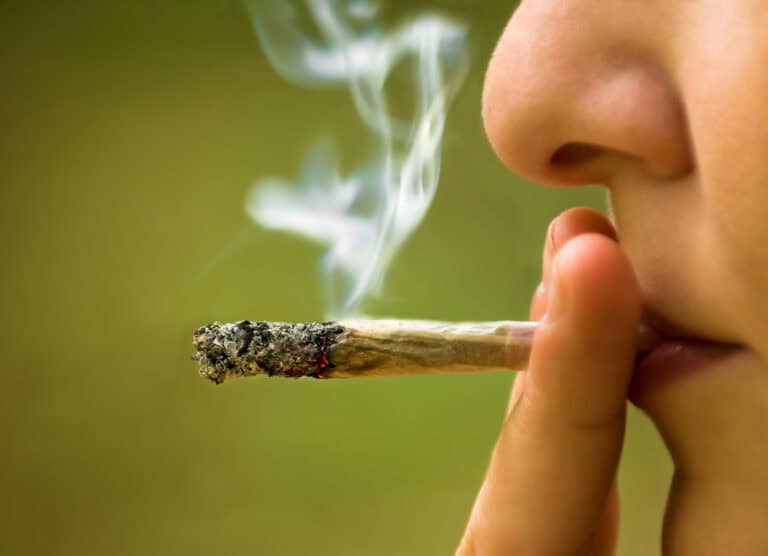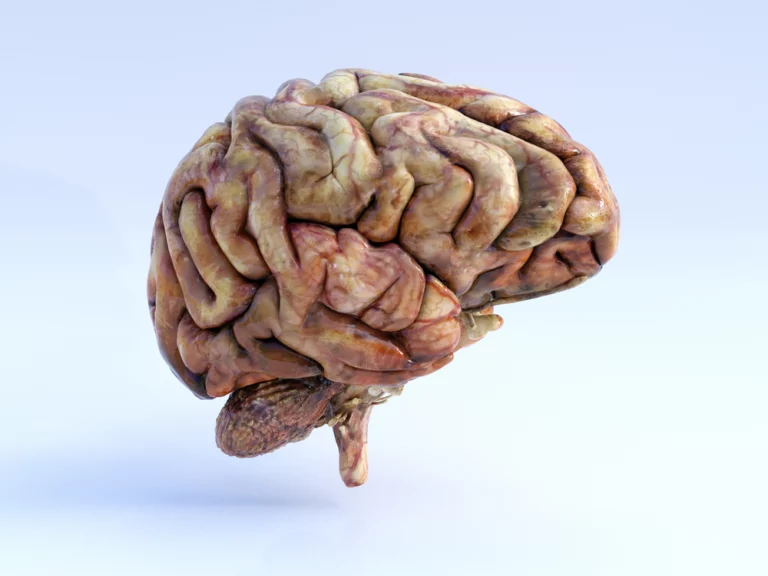Is my child an alcoholic? Unfortunately, many parents find themselves asking this question. Anyone can become addicted to alcohol. You don’t have to be over a certain age. In fact, young adults make up a large portion of those who habitually consume alcohol. Across the world, teenagers are having difficulty dealing with new adult emotions, physical changes, and added responsibility. If left unchecked, these issues may develop into behavioral problems or even substance abuse.
Because of this, parents and loved ones of young adults must be on the lookout for signs of trouble. Continue reading to learn the common signs of alcohol abuse, the dangers of this addiction, and how to get help for your child.
Alcohol Addiction Explained
Alcohol abuse is described as alcohol use disorder. Alcoholism is the most severe type of alcohol abuse, in which individuals are unable to control their drinking habits. Alcohol use disorder has three categories: mild, moderate, and severe. Each category has distinct symptoms, which may result in detrimental side effects if left untreated. If neglected, any form of alcohol abuse may become uncontrollable.
Alcoholism can create a wide variety of issues and negatively impact professional and personal goals, relationships, and overall health, all of which contribute to a sense of needing alcohol to function normally. As time passes and damage accumulates as a result of consistent alcohol abuse, the resulting serious side effects can become more severe and produce harmful complications.
Risk Factors
Alcoholism is caused by a variety of factors, not just one. Every individual has different risk factors for developing an alcohol addiction, and these factors affect each person differently, leading to different outcomes. However, the following are common risk factors for the development of alcoholism.
Psychological Issues
Certain mental health disorders significantly increase the risk of alcoholism. For example, people with bipolar disorder, depression, social anxiety, and other mental health issues are much more susceptible to substance abuse. More than 40% of bipolar patients abuse or are dependent on alcohol, and around 20% of those with depression are substance abusers or dependent.
Personality Factors
Some personalities are more vulnerable to developing alcoholism than others. For example, those who are more inclined to take risks, for example, are more likely to engage in heavy drinking. Like genetics, personality factors are extremely complex and interact with one another. Someone who wants to “keep the party going” may become a heavy social drinker because they believe that they are more “charming” when intoxicated, and someone with severe shyness may consume more in order to reduce their anxiety in social situations.
Genetics
The importance of a person’s genetics and family history of substance abuse in determining whether or not they develop an addiction is well established by numerous studies. Whether they are raised by alcoholics or not, biological children of alcoholics are much more likely to become addicts than those who are not. Non-biological children of alcoholics, on the other hand, are less prone to substance abuse if raised by alcoholics than those who are biological children of alcoholics.
Family Life
Genetics aside, a person’s family life has a significant impact on whether they become an alcoholic. People who are raised in a family where heavy drinking is routine, or even encouraged, are more likely to become alcoholics. In these families, heavy drinking is normalized and glamorized; it becomes socially acceptable, expected, and even desirable.
Environment
The environment plays a significant role in whether an individual develops alcoholism. Alcohol is less available in some nations and states than in others, making it harder to obtain. If an individual has less access to alcohol, he or she is less likely to develop alcoholism. The more prevalent alcohol is in an environment, the higher the risk of developing alcohol use disorders. The family’s financial status also plays a role. Individuals with higher family wealth are more likely to drink heavily and develop alcohol addiction. In the United States, 78% of people with household incomes of $75,000 or more drink, while only 45% of those with household incomes of less than $30,000 do so.
Age
Alcohol abuse is highly influenced by an individual’s age. Drinking typically begins in the late teens or early twenties, peaks in the late and middle twenties, and diminishes by the early thirties. People in their early to mid-twenties are the most prone to alcohol abuse and to developing problems with it. Starting to consume alcohol at an early age increases the likelihood of developing alcoholism as an adult. Individuals who begin consuming alcohol prior to age 15 are particularly at risk.
Signs Your Child is Drinking
A parent’s worst nightmare is to see their child abusing alcohol. However, when addiction occurs, it may destroy their child’s life. Substance abuse in children may also unravel the fabric of trust that is so critical in a family. Early intervention is critical. Here are eight symptoms that your child may be drinking:
Change in Appearance
Alcohol abuse can result in changes in the physical appearance of your child. They may experience rapid weight loss or gain, causing their appetite or sleep patterns to shift. In addition, you may notice that your child has bloodshot eyes or that their pupils are unusually small or large. These physical alterations may indicate alcohol consumption.
Behavioral Changes
Has your child suddenly experienced a loss of interest in their favorite activities or sports, or neglected personal hygiene like regularly bathing or even brushing their teeth? This lack of interest may be a warning sign of alcohol abuse. Many children and young adults who abuse alcohol are often driven away from activities they once enjoyed, focusing instead on obtaining and consuming alcohol.
Neglecting Responsibilities
If your child, who is usually responsible and attentive with school, athletics, or other activities, begins to miss classes, skip school altogether, or seem uninterested in his or her duties, this might be a sign of something serious like a drinking problem. Missing classes or getting a bad grade on a test are common, but not when they occur suddenly and more often than usual.
New Social Circle
Have you noticed any modifications in your child’s social circle? Have you noticed that your daughter does not speak about Vicki as frequently as before, or that your son has a new best friend who seems to be encouraging bad behavior? Children frequently alter their friendships when they start abusing alcohol. This might include having brand-new friends instead of old ones or having separate friend groups. Your child may also appear to be more secretive about their cell phones and social media profiles.
Dangers of Alcohol Abuse in Adolescence
Heavy drinking can lead to serious neurological damage, which can negatively affect cognitive functioning. This can also negatively impact spatial and visual processing, which are both important skills for concentration. In addition to neurological damage, heavy drinking can negatively impact teen brain development, which can adversely impact their attention span and cognitive skills.
The structure and function of the brain are also affected by the consumption of alcohol by minors. This can lead to academic problems. The hippocampus, which controls memory and other critical processes, is damaged by alcohol. People with a history of alcohol abuse as teenagers have a smaller hippocampus, resulting in memory loss, cognitive impairment, decreased attention span, and poor decision-making.
Young people who drink are also less likely to be able to plan and organize, as well as perform worse in school, because of the damaging effects of alcohol on developing brains. They are also more likely to engage in delinquent behavior. The NIAA’s research revealed that chronic alcohol abuse is more likely to occur in teens than in adults. Psychological problems such as anxiety and depression, which are common in young people who consume alcohol, have also been identified.
Thousands of young people are injured or killed each year as a result of drunk driving and other reckless behavior as a result of underage drinking. Car crashes account for nearly 40% of all fatalities, with 32% resulting in murder, and 6% resulting in suicide. Every year, more than 200,000 emergency room visits are due to injuries and other health issues related to underage consumption. Minors who have consumed alcohol are more likely to be severely injured in a fall, drowning, or other mishaps. They are also more prone to suicide and violent criminal activity and to be victimized by violent criminals.
Is my Child an Alcoholic?
Recognizing the subtle signs of teen alcoholism can be challenging, especially if it’s your own child. However, research has shown that 78% of high school students have consumed alcohol. Addiction, which can ruin lives if left untreated, may develop as a result of this experimentation. The following are signs of alcoholism in adolescents:
Stealing Money
Children or teenagers who have developed an alcohol addiction are unlikely to have the money to maintain their habit. Be on the lookout for missing jewelry, electronics, and other items that they may have tried to sell in order to raise money. If your child frequently asks for money or has unexplained debit card overages, this may be an indication of trouble and possible alcoholism.
Physical Intoxication
Children and adolescents display the same signs of alcohol intoxication as adults. If your son or daughter regularly returns home smelling of alcohol, walks unsteadily, or speaks incoherently, it’s time to consider how to talk to an alcoholic son or daughter about their drinking and get them professional help.
Stealing Alcohol
Have you noticed a couple of cans of beer or bottles of liquor missing? You may initially have thought you consumed them yourself and forgotten. As children become increasingly addicted, they seek out alcohol anywhere they can, including your liquor cabinet.
Hiding Their Drinking Habit
A lot of younger alcoholics try to keep their drinking a secret. Many parents find out about their son’s or daughter’s alcohol problem when they find alcohol in their child’s bedroom. Cushions, beds, shelves, and suitcases are just a few of the places where a person might stash their alcohol. You may also look through the recycling bins to see if there are more discarded items or more empty cans or bottles.
Alcoholism Treatment in Knoxville, Tennessee
At Knoxville Recovery Center, substance abuse problems are tackled directly in order to promote healing. Every client’s alcohol addiction treatment program is custom-designed to dispel the darkness of their condition and help them live as productive members of society. In addition to master’s degree counseling and other holistic treatments, clients receive individual and group therapy.
With our comprehensive treatment programs and services, you can receive treatment for your alcohol addiction and learn to once again be hopeful for your future. You no longer have to continue suffering. We can assist you in leaving your addiction behind permanently. Please contact us as soon as possible so that we can assist you in recovering once and for all. You are not alone.












